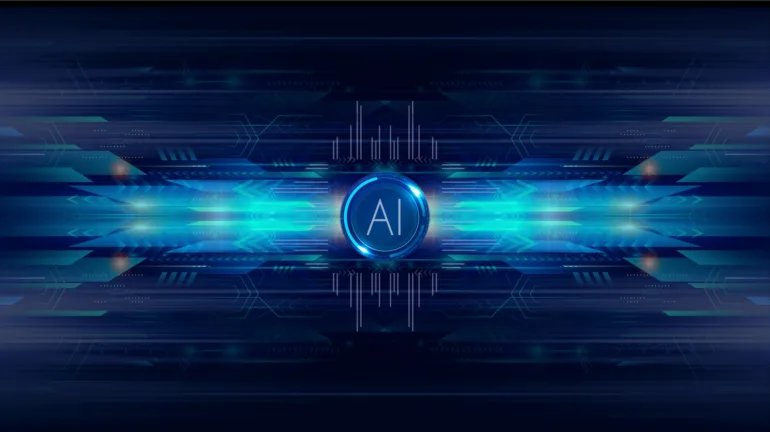TL;DR:
The Importance of Ethics in AI Development:
- CTDO Next calls for the adoption of 7 ethical principles to guide AI integration in the TD function.
- Fairness
- Inclusiveness
- Transparency
- Accountability
- Privacy
- Security
- Reliability
The Critical Role of Talent Development in AI:
- The integration of AI into the workplace requires significant training and preparation from the TD function.
- Employees will need training in “prompting” and data evaluation.
- The TD function must provide training for employees when AI systems are used to make important decisions.
- TD must expand its training in cyber security and threat awareness to cover AI-specific risks.
- TD must share best practices for AI design, development, and implementation to promote the ethical and reliable use of AI.
Main AI News:
In 2019, CTDO Next, ATD’s premier consortium of talent development leaders, released a seminal whitepaper, “The Responsibility of TD Professionals in the Ethics of Artificial Intelligence.” The paper emphasized the need for a code of ethics to guide the integration of AI into the TD function and outlined several key steps to be taken.
Recently, over 1,000 tech leaders and researchers have called for a halt in AI development, citing “profound risks to society and humanity.” Regardless of whether such a halt is implemented, it is clear that organizations must carefully consider how they will harness the rapidly growing power of AI. In light of this, CTDO Next renews its call for the TD profession to adopt the following seven principles:
- Fairness: AI systems must treat all employees equitably and never discriminate based on factors such as race, gender, orientation, or disabilities. HR experts should play a central role in the design and deployment of AI systems, and training should be mandatory for all employees prior to deployment.
- Inclusiveness: AI must empower all employees and be accessible to everyone, regardless of their background or abilities. Efforts must be made to eliminate any potential biases in AI systems.
- Transparency: Employees must be informed of when and where AI systems are being used and have a clear understanding of their purpose and operation. When AI systems are used to make decisions affecting employees’ careers and lives, those impacted must have insight into the decision-making process and the role of AI in it.
- Accountability: Those responsible for designing and deploying AI systems must be held accountable for their operation. Clear ownership must be established for all AI systems, and all parts of the organization must receive training on AI usage.
- Privacy: AI systems must respect employee privacy, and those with access to data and AI systems must be trained in data privacy.
- Security: AI systems must be secure, balancing the value of information against the ability to protect it. The TD function will have access to sensitive data and must ensure that security measures are in place to prevent hacking and unauthorized access.
- Reliability: AI systems must perform reliably and safely, operating within a clear set of parameters and subject to verification. Employees must be trained to recognize and correct any unintended behaviors that may arise in AI systems.
The Talent Development Function’s Critical Role in Artificial Intelligence
The integration of AI into the workplace will place significant demands on the talent development function. In addition to the training mentioned earlier, all employees will require training in “prompting” to help them effectively interact with AI systems. Organizations will also need individuals trained in evaluating the quality and suitability of the data and models used to train and operate AI.
Moreover, when AI systems are utilized to make consequential decisions about employees, the talent development function must provide training to effectively explain how the system operates. The function must also help establish a shared understanding of when and how an AI system should seek human input during critical situations and provide a robust feedback mechanism for employees to easily report performance issues.
The talent development function must expand its current training in cyber security and threat awareness to encompass the unique risks associated with AI. If we want to effectively manage this transformation and ensure AI serves us, it must be implemented with a deep concern for its human impact.
The talent development function must also actively share best practices for the design, development, and implementation of AI systems that promote predictable and reliable interaction with employees. As the experts in optimizing the impact of technology on organizations, the talent development function is uniquely positioned to lead the way in ensuring that our use of AI meets the highest ethical standards.
Conlcusion:
The adoption of ethical principles and guidelines for AI integration is crucial for organizations to harness its power effectively and safely. The talent development function will play a critical role in this transformation, providing training for employees to interact with AI systems, evaluating data and models, and ensuring the ethical and reliable use of AI.
Organizations must prioritize the implementation of AI with a deep concern for its human impact, balancing the value of information against privacy and security concerns. The talent development function must also share best practices for AI design and implementation to promote predictable and reliable interaction with employees. This will ensure that the use of AI meets the highest ethical standards, benefiting organizations and society as a whole.

